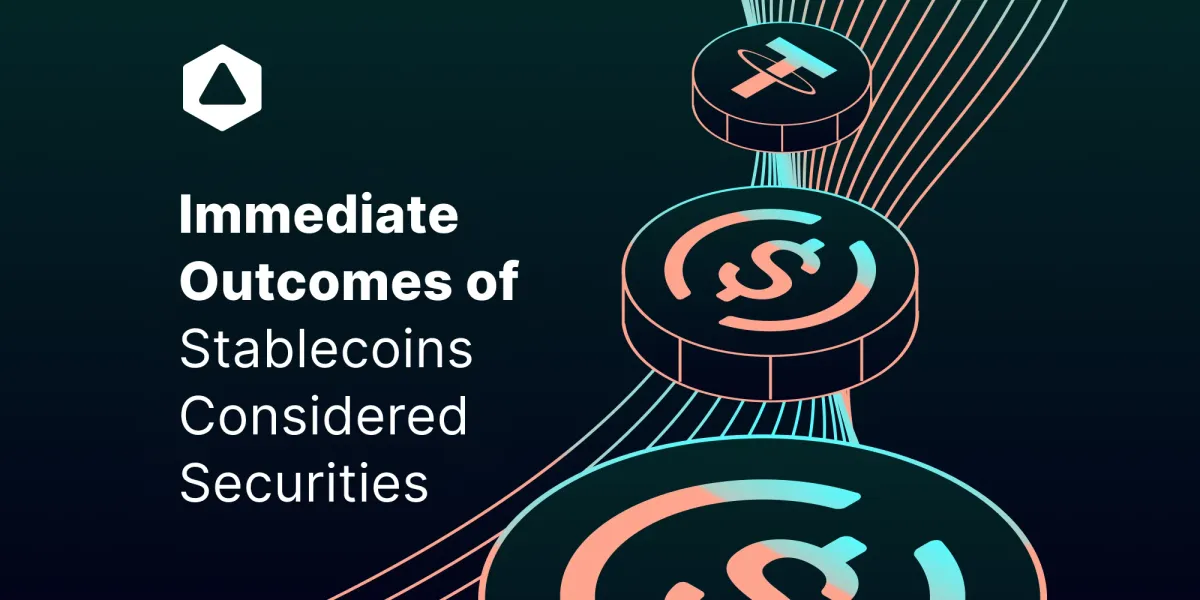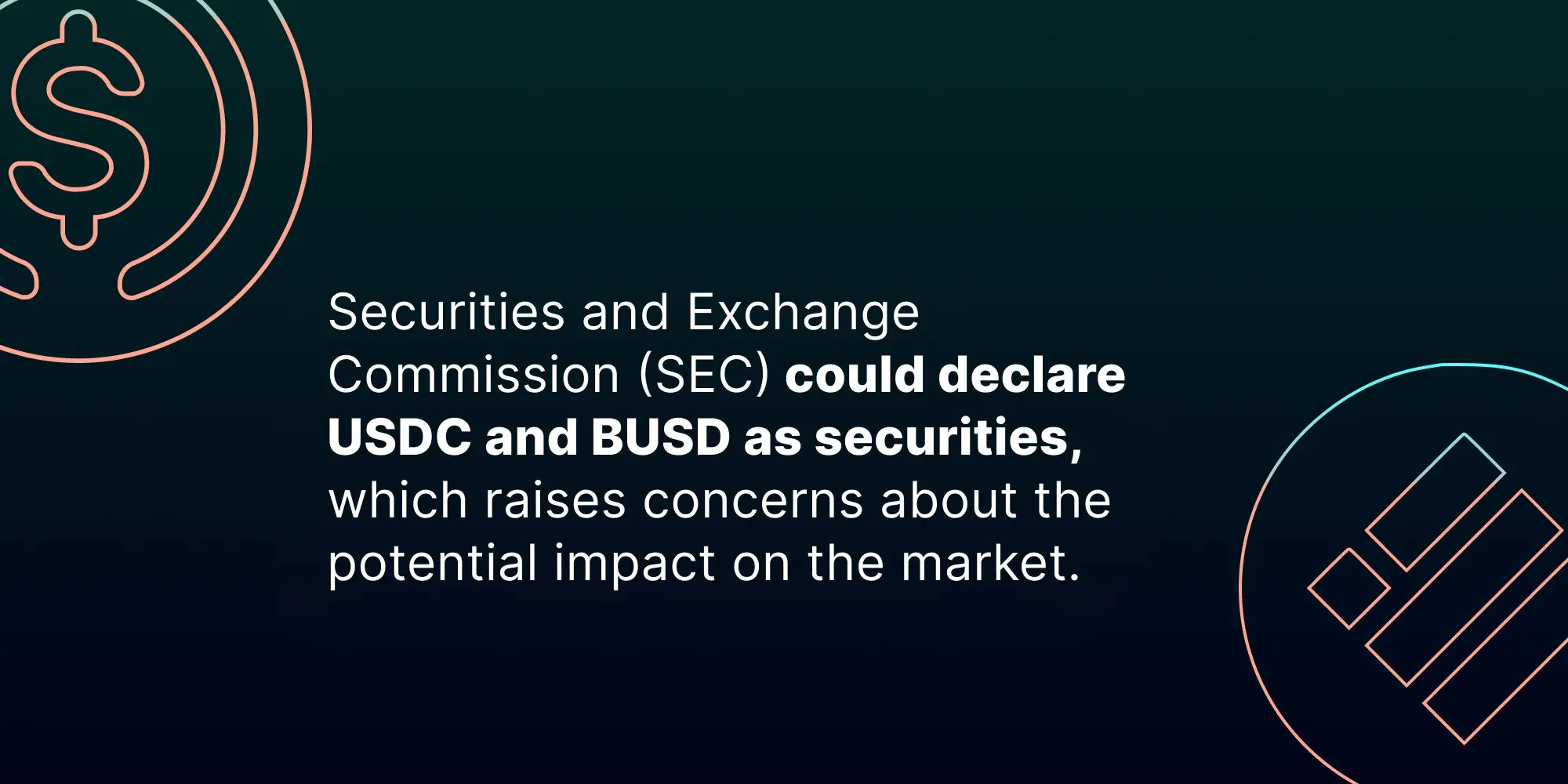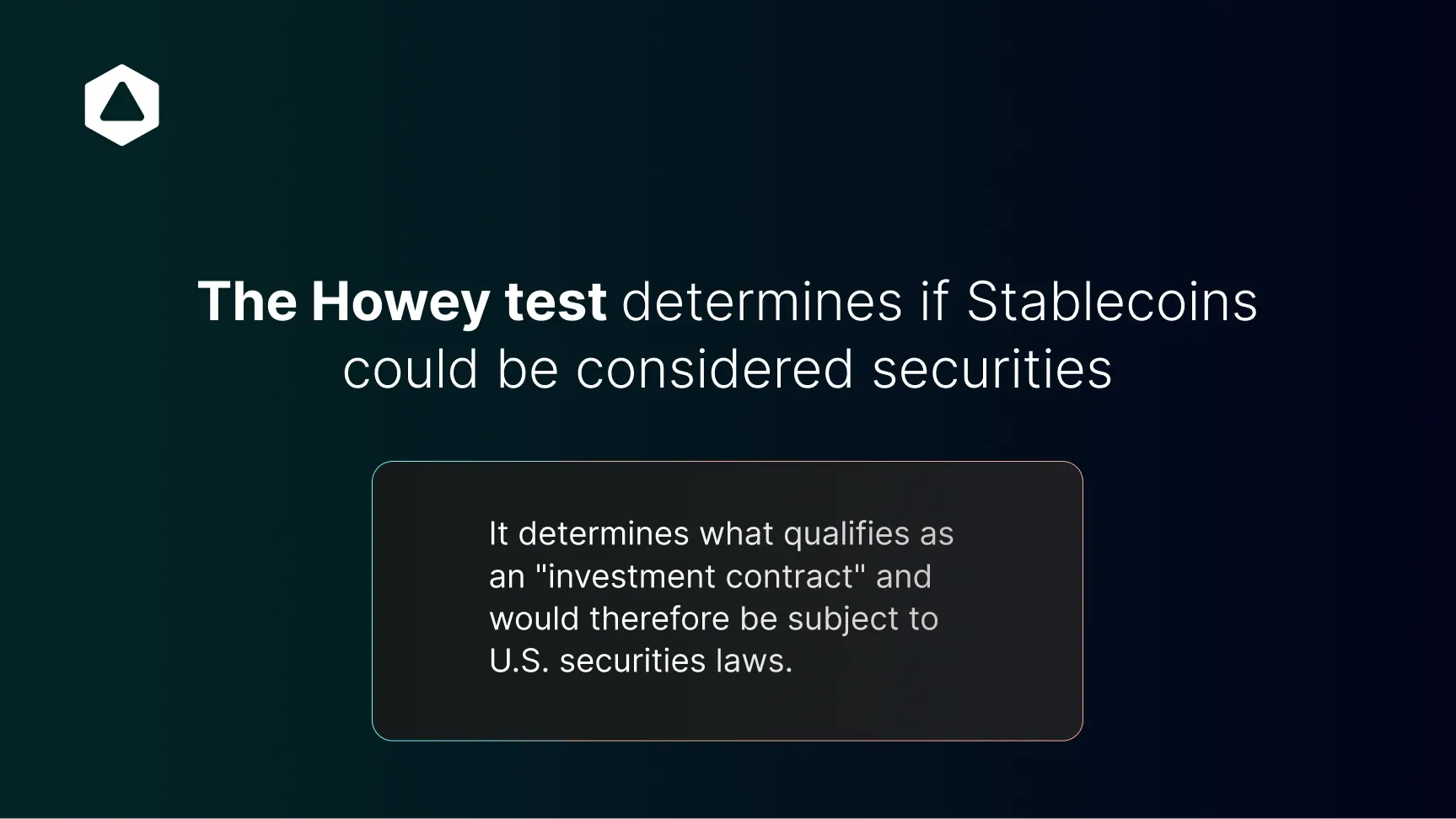Immediate Outcomes of Stablecoins Considered Securities
This article explores the changing regulatory stance on stablecoins in the US, the potential implications of labeling them as securities, and its impact on the DeFi market.

Stablecoins have been a hot topic in the regulation equation of the cryptocurrency asset class, and the question of whether they should be considered securities has been a subject of debate. The recent move by the Securities and Exchange Commission (SEC) to consider the possibility of declaring USDC and BUSD as securities could have a significant impact on the market. We’ll take a look at what could happen if regulators label them as securities.

Changing Regulatory Stances
The regulatory stance on stablecoins in the US is not static, to say the least. In 2021, the Chairman of the Securities and Exchange Commission (SEC), Mr. Gensler, stated that some tokens and stablecoins backed by securities might be treated as securities. However, the next year, Mr. Gensler said that the Commodity Futures Trading Commission (CFTC) has to decide about the fate of the stablecoin regulation.
Recently The U.S. House Financial Services Committee has recently resumed discussions on regulating stablecoins, and has proposed a detailed 72-page draft legislation. To this day it is still uncertain whether stablecoins will be classified as securities by regulators.
How Could Stablecoins Be Considered Securities?

Stablecoins could be considered securities if they meet the ‘simple’ Howey test, which requires an investment of money in a common enterprise with the expectation of profits derived from the efforts of others.
While some argue that there is no expectation of profit with stablecoins, because of their stable nature, regulators could say that stablecoins meet the test based on the economic reality. Whereas a centralized entity ensures the "consumptive use" of its stablecoins, and where the value of the stablecoin is expected to materialize, resulting in potential profits for investors.
This will be a matter of interpretation and could lead to court cases where parties such as Circle or Paxos will defend their stances, and perhaps a dragging court case like we’ve seen with the Ripple case.
What Would Happen if Stablecoins Were Considered Securities?
While we don’t have a glass ball to predict the future, we could make some speculations based upon current market narratives.
So, if stablecoins were considered securities, it would likely result in regulatory requirements to be filled in such as registration,disclosure of a financial security for potential buyers or a customer disclosure. This would create additional compliance costs for stablecoin issuers and could lead to a decrease in demand for uncertain investors worldwide - or in the United States.
On the other hand, if stablecoins were subject to regulation, presumably greater protection could be provided for investors and this could help to reduce fraudulent activities in the stablecoin markets, according to the regulators.
Downfall of DeFi
If the SEC or CFTC was to declare the major stablecoins as securities, there could be several immediate outcomes. The potential impact on the market would likely result in a sell-off, with probably Bitcoin being less affected than other cryptocurrencies. A 5-10% correction across markets, because several Decentralized Finance (DeFi) projects rely heavily on USDC and will sell their stablecoin holdings off.
A new rise and growth to fully decentralized stables could also happen, while the stablecoins issued by financial services will be looked at as considered securities, stablecoins minted through smart contracts will not.
Conclusion
While the question of whether stablecoins are securities remains a subject of debate, the potential impact of a declaration could be significant. Investors should stay informed about regulatory developments and be prepared for market volatility in the event of any changes. Stablecoins exist in a regulatory gray area, but clarity is needed and will come over time from regulators to distinguish acceptable practices and alternatives.
Connect with Bitfinity Network
Bitfinity Wallet | Bitfinity Network | Twitter | Telegram | Discord | Github

*Disclaimer: While every effort is made on this website to provide accurate information, any opinions expressed or information disseminated do not necessarily reflect the views of Bitfinity itself.





Comments ()